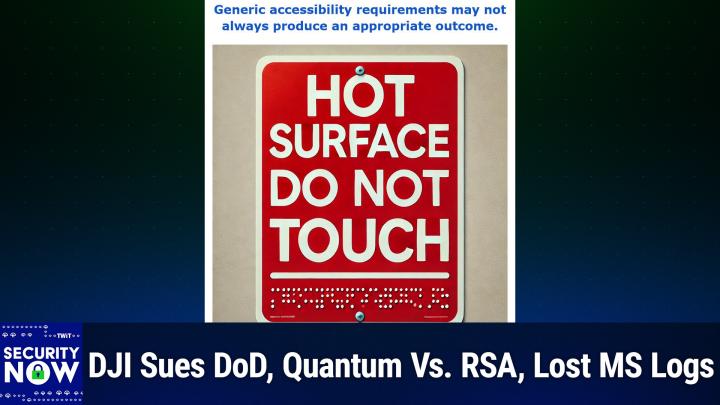FIDO Alliance Unveils Game-Changing Credential Exchange Protocol for PassKeys
AI created, human edited.
The FIDO Alliance has taken a significant step toward addressing one of the most pressing challenges in the PassKey ecosystem: credential portability. During the recent FIDO Alliance Authenticate Conference in Carlsbad, California, the organization unveiled its draft specification for the Credential Exchange Protocol (CXP), a development that Security Now's Steve Gibson describes as evidence of "much-needed maturity" in the industry.
As discussed by Gibson and Leo Laporte in a recent Security Now episode, the current landscape of credential management is fragmented and often insecure. Users face significant challenges when attempting to transfer credentials between different platforms or password managers. The common solution—exporting to CSV files—essentially dumps sensitive information into plain text, creating substantial security risks.
The protocol's architecture, while still in draft form, demonstrates elegant simplicity in its approach to secure credential exchange. At its core, CXP employs Diffie-Hellman key exchange, allowing for secure credential transfer between providers. The process follows these basic steps:
1. The recipient creates an export request containing necessary parameters and a challenge
2. The exporter uses this information to create an encrypted payload
3. The system establishes a shared "migration key" through Diffie-Hellman exchange
4. The encrypted credentials are transferred and can only be decrypted by the intended recipient
Gibson notes that while the protocol's framework is solid, much of the specification remains to be fleshed out, particularly regarding user experience and implementation details.
The development of CXP has garnered impressive industry backing. Major players including:
Password managers: 1Password, Bitwarden, Dashlane, NordPass, and Enpass
Tech giants: Apple, Google, Microsoft, and Samsung
Identity providers: Okta
This broad cooperation suggests a significant shift away from the traditionally closed ecosystems that have dominated the industry.
While CXP was primarily designed for PassKey migration, its potential applications extend far beyond. As Google's Christian Brand noted, the protocol could eventually support the secure transfer of various digital credentials, including driver's licenses and passports.
The specification is still in its early stages, with Gibson characterizing it as having "very little meat on this bone." However, he emphasizes that the overall mechanism is clear, proven, and workable. The main challenge lies in addressing potential man-in-the-middle attacks, which might require additional authentication mechanisms such as DNS-based verification or a central FIDO registry.
Alongside CXP, the FIDO Alliance launched PassKey Central (passkeycentral.org), which Gibson describes as "PassKey adoption lubricant." This resource aims to facilitate broader PassKey implementation by providing essential tools and documentation for organizations considering adoption.
Gibson's ultimate assessment is decidedly optimistic. He suggests that with CXP's development and the maturation of the PassKey ecosystem, the question has shifted from "whether" to "when" organizations should adopt PassKeys. As he puts it, "there's no longer any rationally supportable argument to be made for waiting any longer."
While some challenges remain—particularly around credential recovery and fallback authentication methods—the introduction of CXP represents a significant step toward a more secure and user-friendly authentication future. As traditional password systems face increasing scrutiny (with Gibson referencing Meta's recent password storage controversy), the momentum behind PassKeys and supporting protocols like CXP appears unstoppable.
The evolution of this specification will be worth watching closely, as it could fundamentally reshape how we manage and transfer digital credentials across the increasingly complex digital landscape.
